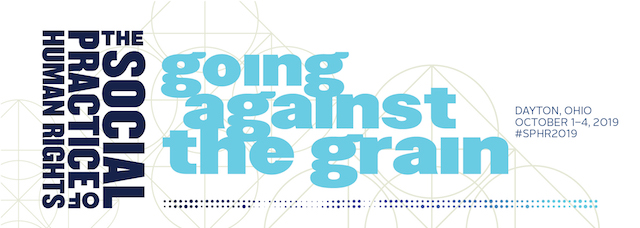Location
Gender, Research, and Advocacy: What We’ve Learned and What Work Lies Ahead
Start Date
10-2-2019 2:00 PM
End Date
10-2-2019 3:30 PM
Abstract
From the global Women’s Marches to the #metoo movement and SDG 5, women’s rights and gender equality are clearly among the most urgent issues for the international human rights movement today. Long-held commitments and established language on women’s rights and gender equality are under threat at all levels of governance and in issue areas ranging from sexual violence to reproductive health to political participation. If history has made one thing clear, it’s that women’s rights are fragile and constantly at risk of being extinguished for political purposes. This panel will explore the following four themes from the conference in light of this global reality:
Connecting Scholars and Practitioners: What are the opportunities and limitations of connecting research and advocacy when working on women’s rights and/or gender equality issues? Which research methods are ideal for bridging scholars and practitioners on these issues?
Movements: To what extent do we or should we distinguish between studying (and doing) women’s activism and using a gender perspective in human rights advocacy? Are there ways in which greater visibility to women’s issues has narrowed our understandings of women? To the exclusion of other gender-related issues?
Technology: What role does technology play in creating visibility for gender issues and voices? For sharing research on human rights advocacy or aiding mobilization?
Neoliberal Solutions: What is the status of philanthropy and funding for work on gender issues? Have market-based solutions to raise funds for NGOs become dominant in ways that perpetuate stereotypes?
Gender, Research, and Advocacy: What We’ve Learned and What Work Lies Ahead
Gender, Research, and Advocacy: What We’ve Learned and What Work Lies Ahead
From the global Women’s Marches to the #metoo movement and SDG 5, women’s rights and gender equality are clearly among the most urgent issues for the international human rights movement today. Long-held commitments and established language on women’s rights and gender equality are under threat at all levels of governance and in issue areas ranging from sexual violence to reproductive health to political participation. If history has made one thing clear, it’s that women’s rights are fragile and constantly at risk of being extinguished for political purposes. This panel will explore the following four themes from the conference in light of this global reality:
Connecting Scholars and Practitioners: What are the opportunities and limitations of connecting research and advocacy when working on women’s rights and/or gender equality issues? Which research methods are ideal for bridging scholars and practitioners on these issues?
Movements: To what extent do we or should we distinguish between studying (and doing) women’s activism and using a gender perspective in human rights advocacy? Are there ways in which greater visibility to women’s issues has narrowed our understandings of women? To the exclusion of other gender-related issues?
Technology: What role does technology play in creating visibility for gender issues and voices? For sharing research on human rights advocacy or aiding mobilization?
Neoliberal Solutions: What is the status of philanthropy and funding for work on gender issues? Have market-based solutions to raise funds for NGOs become dominant in ways that perpetuate stereotypes?



